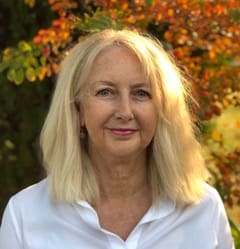Connecting Ethics and Peacebuilding Throughout Oceania. Member Spotlight: Susan Hayes
Susan Hayes is an experienced peacebuilder, mediator, and conflict management coach, with a career that has ranged across teaching, community education, public sector administration, and international development. She has been a mediator for four years and joined the Bali Congress in 2019 with the hopes of meeting and working with more MBBI members towards the goal of establishing an MBBI Oceania Chapter. The idea for the chapter was born two years ago, when a group of mediators and peacebuilders in Australia had a teleconference to see who was interested in the project, and there was enthusiasm from all sides to work towards a common goal of a regional group.
Launching MBB Oceania
 Since the November Congress the group has been meeting regularly and the plans to launch the chapter are pretty well advanced, with membership open across the Oceania region including Australia, New Zealand, the Pacific, and Southeast Asia. The group registered as a legal entity in Australia in late May.
Since the November Congress the group has been meeting regularly and the plans to launch the chapter are pretty well advanced, with membership open across the Oceania region including Australia, New Zealand, the Pacific, and Southeast Asia. The group registered as a legal entity in Australia in late May.
Their mission is to initiate and support peacebuilding projects in the Oceania region, work to embed the principles and practices of mediated conflict management in regional communities, and have regional leaders recognize the value of peaceful dialogue. The group is currently exploring potential projects and reaching out across the region. Susan hopes the chapter will build a profile and offer advice and capacity-building in peacebuilding and conflict management through partnering with governments and communities in the region.
International development
After working for many years in education, community development, and human resource management in the public sector, Susan changed career direction to international development in 2004. Her interest is in post-conflict and newly independent countries across the fields of public administration, evaluation, policy development, education and law, and justice. She has worked in a number of the Pacific island states, in Mongolia and Timor Leste and for several years in Papua New Guinea.
Her first significant foray into international development work came in 2004 when she was seconded from an Australian government agency to support the central public service agency in Solomon islands in re-establishing its functions following “the conflict” that commenced in 1998. At that time, public services to the community had almost completely broken down and many government workers had returned to their home islands to escape the violence. Her first task was to convince people to come back to work.
In doing work of this kind, Susan emphasized the need to listen in order to truly engender trust with the people you are working with. She is encouraged by the fact that there has been an increase in the region in incorporating dispute resolution into legislation and government processes. For example. in Papua New Guinea a system of diversion to mediation was introduced some years ago as part of the court system.
Ethics in education
Susan also volunteers as an ethics teacher in a local primary school in the Blue Mountains outside Sydney where she lives. During her first career as a teacher (30+ years ago), Susan incorporated ethics and communication lessons into her classes: ‘It wasn’t very common in those days to include ethics in the curriculum …but I thought it was really important that children learned to have meetings, discuss things and make good decisions’.
Working with children again, teaching ethics gives her a chance to support children from an early age in learning the invaluable skills of active listening and ethical decision-making. She believes these are foundation skills for peacebuilding and conflict resolution and that children are advantaged throughout their lives by learning these skills early.
Inspiration and influences
Susan has had several different careers in her lifetime and has worked towards building peace and embedding empathy and conflict management into everything she does. When asked about her reasons for gravitating towards this sort of work, Susan cites her father’s ability to be fair to all of his seven children, treating them with respect and all equally, as a massive influence on her sense of justice.
Like many of our members, Susan has found a way to work on developing her own inner peace through meditation practice. She is a practicing Buddhist and finds the tenets of ‘focusing on managing your own emotions and practicing empathy and loving-kindness’ extremely valuable in her life and work. For 20 years, Susan has been a member of a Buddhist group that promotes Buddhism through active social service, including a hospice visit program and support for refugees. As a way of life, these ideals have brought her a lot of peace and have really impacted the way she operates in her mediation/conflict management coaching practice, and her international development work.
Article by Lizzy Nestor, MBBI Writer
